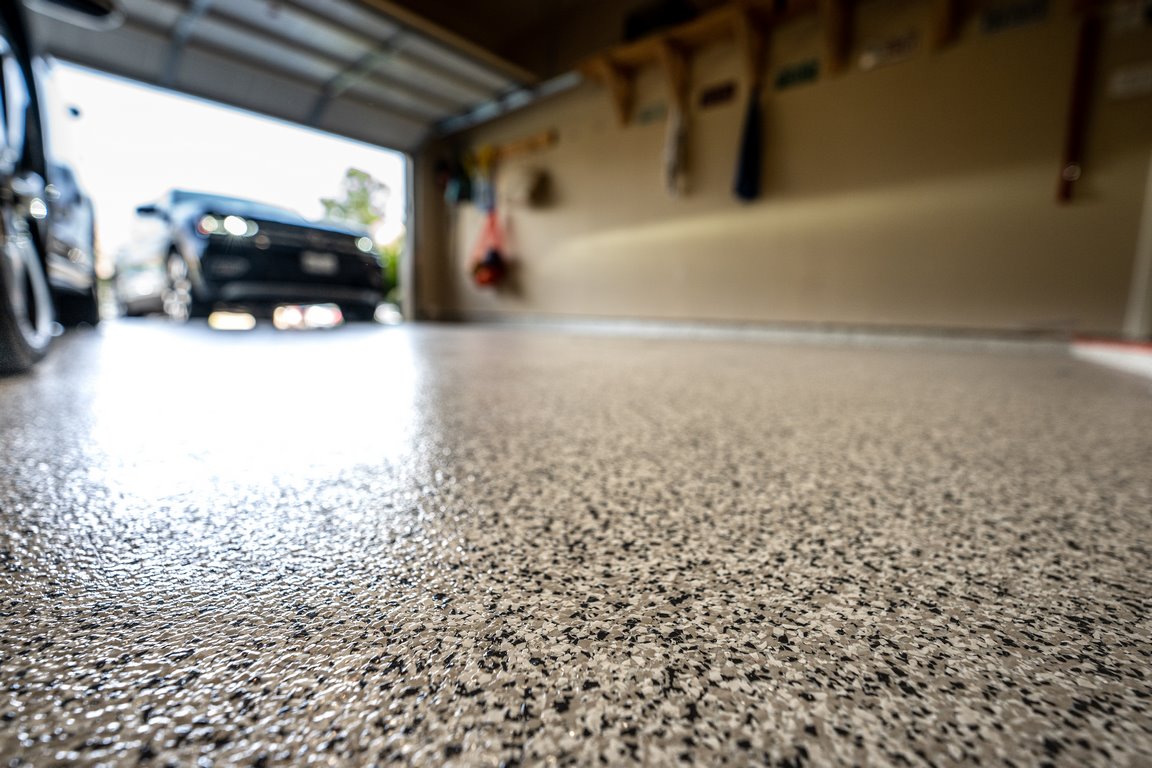Table of Contents Show
Whether for residential or commercial buildings, choosing the appropriate flooring material may give you a few challenges. However, one of the main factors you need to consider is the location of the floor in the building.
The reason is that some parts of your home or commercial building may experience more traffic than others.

Including epoxy flooring in your list of flooring materials is wise, especially if you’re looking at a high-traffic floor. While looking at each material, it’s best to know the advantages and disadvantages.
So, when it comes to epoxy flooring, the pros and cons below can help your decision-making.
Pros of Epoxy Flooring
1. Resistant and Protective
One of the main advantages of epoxy flooring is its resistance to elements such as chemicals, oil, and grease. Additionally, it can withstand high temperatures. Thus, you can use it in your garage or an area with frequent liquid spillage that would otherwise damage other flooring materials.
It’s also worth noting that once installed, epoxy flooring is impermeable. Therefore, you don’t have to worry about damp floors that may cause health problems or growing molds.
Furthermore, epoxy flooring is easier to clean and disinfect due to its resistance to chemicals and water. Thus, you can use it in areas like the kitchen where you need to disinfect regularly.
Because of its resistant quality, an epoxy floor protects the concrete floor beneath it. The concrete in areas like garages or high-traffic commercial buildings is subject to wear and tear at a higher rate.
But when you use epoxy flooring, it protects the concrete from cracks, oil, or water damage. This allows you to save on repairs and maintenance costs.
2. More Durable
Epoxy flooring lasts longer compared to other flooring materials. While durability may depend on other factors like wear and tear, weather, and maintenance, epoxy flooring can generally serve you longer.
It can also handle heavy traffic without cracking or peeling off when properly installed. This makes it a good option for areas like your workshop or garage where you may have heavy equipment on the floor.
3. Economical
Even though the initial cost of epoxy flooring might be higher, the cumulative expense is much lower than other flooring materials. For example, you can install epoxy flooring over the existing concrete floor.
You don’t need to prepare a different flooring system to accommodate its installation process.
In addition, if and when you need to replace it due to wear and tear, its replacement cost is considerably lower. This is because you won’t need to prepare the concrete floor again to suit the replacement.
Due to its durability and resistance, epoxy flooring entails lower costs for repairs and maintenance than other flooring materials.
4. Aesthetically Pleasing and Customizable
Epoxy flooring is available in a variety of colors. Additionally, you can add pebbles of different colors to add visual appeal. You can choose the color according to your theme or liking.
The addition of pebbles also allows you to customize it further. Given that you can add the pebbles after purchasing, you can use different pebble colors on other floors to improve the aesthetic appeal of your home or building.
For such areas as the garage or kitchen, you can add pebbles to improve its grit surface, making it more slip-resistant.
Cons of Epoxy Flooring
1. Time-Consuming Installation
To obtain a quality epoxy floor, you need to take time with every process, from preparing the concrete floor and mixing the epoxy to installing and curing. If you rush it, you may end up with some areas peeling off earlier.
Most of the effort involves ensuring the concrete doesn’t have grease or solvents. Getting the concrete clean and ready for epoxy installation can take a lot of time.
In some cases, and to save on time, you can use a penetrating concrete sealer. However, the result may not be as appealing. A good epoxy flooring application requires considerable time to dry too.
Overall, when you choose to use epoxy flooring, it’s essential to give it adequate time before you can start using it.
2. Slippery When Wet
Using epoxy flooring on areas with frequent liquid spillage can be dangerous as it can be slippery when wet. Although you can add a slip-resistant additive, you have to incur the additional cost.
3. May Not Adhere Well in Moist Environments
When applying epoxy flooring, you must ensure the concrete dries completely before installation. Otherwise, it may not adhere well and can peel off the floor sooner or start to bubble in some parts.
The same applies if you use it in an area with frequent moisture issues. For example, if your basement has moisture problems, the concrete may not dry properly, meaning the epoxy won’t adhere as it should. Thus, you may need to replace the floor more frequently, raising your costs.
Conclusion
The superior qualities of epoxy flooring make it an ideal option for homes and buildings. Although the installation process takes longer than other flooring materials, the results are well worth the wait.
You may contact your flooring contractor for a professional assessment. In addition, consider the pros and cons discussed above to help you decide if epoxy flooring is right for you.










